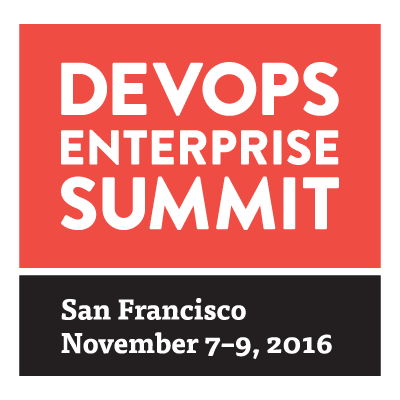Author Gene Kim recently told us that after the release of his book "The Phoenix Project: A Novel about IT, DevOps, and Helping Your Business Win," the most common feedback he got from readers was one question – "How?" Jan Schilt, founder of GamingWorks, has attempted to help people answer that question by developing a business simulation game based on the fictional case study in "The Phoenix Project."
Schilt has delivered the "Phoenix Project" simulation at a number of different organizations to help them better understand DevOps and what it can do for their businesses. Along the way, he's uncovered some of the common questions, challenges, and opportunities that can help organizations take a smarter approach to implementing DevOps. Schilt will present these findings at the upcoming DevOps Enterprise Summit in San Francisco, Nov. 7-9, and he's given us a sneak peek. Read on for more.

The Enterprisers Project (TEP): We know many IT leaders who were inspired by “The Phoenix Project.” Can you explain how adapting those principles into a business simulation game is helping leaders turn inspiration into action within their own organizations?
 Schilt: Well, I want to start with a quote from Feng Xu, VP of delivery at Pactera (China), after a recent “Phoenix Project” simulation in Beijing: “I never thought you could experience the value of DevOps through a simulation.” This is exactly what this simulation is designed for. The simulation is a safe learning environment in which we challenge the participants to apply DevOps principles and experience how the business will benefit from them. The team will apply FLOW, visualization, teamwork, processes, lean principles, agile principles, ITSM principles, and, of course, all kind of collaboration and communication skills to deliver faster and without errors.
Schilt: Well, I want to start with a quote from Feng Xu, VP of delivery at Pactera (China), after a recent “Phoenix Project” simulation in Beijing: “I never thought you could experience the value of DevOps through a simulation.” This is exactly what this simulation is designed for. The simulation is a safe learning environment in which we challenge the participants to apply DevOps principles and experience how the business will benefit from them. The team will apply FLOW, visualization, teamwork, processes, lean principles, agile principles, ITSM principles, and, of course, all kind of collaboration and communication skills to deliver faster and without errors.
Teams who play the simulation will create an overall understanding about DevOps. What is it? What can it bring my team/organization? How can I start my journey? What are the success factors and fail factors? Are we ready for it? It’s also a great starting point for further training.
TEP: What are the most difficult aspects for leaders to take out of simulation and into reality
Schilt: From the many demos and conferences we ran this simulation we've found the following challenges, and have been asked these questions:
- How to develop a culture in which it’s normal to share knowledge between “techies” and “support.”
- What to do with management? Where are the managers in an IT organization with squads, teams, etc?
- Where do we start our journey?
- How to organize teams? Should we focus on one business unit, one customer, one service?
- How to involve the business into the standups, KanBan, Flow, Product Owners role?
- How to link ITSM processes into DevOps teams?
- How to develop continuous learning and experimenting in an organization where the IT services are business critical.
TEP: Can you share some success stories or anecdotes, perhaps from an organization that struggled to adopt DevOps before completing the business simulation game?
Schilt: We ran a simulation with a partner in Holland. The CIO of an IT organization had invited his whole IT management team for a one-day “The Phoenix Project” simulation. He invited IT Dev, IT Ops, HR and some business roles as well. He started the day with his introduction: “The last seven years of innovation brought us to where we are now. I'm convinced we can use the same way for the next seven years. Today I want you to experience this ‘other’ way of working. I want you to experience, explore, question and discuss this DevOps approach in this realistic, interactive case. At the end of the day, I want to explore the opportunities.”
 We ran the workshop, and the team actively experienced this way of working. The outcome was a list of opportunities like:
We ran the workshop, and the team actively experienced this way of working. The outcome was a list of opportunities like:
- We can increase the deployment speed.
- We can work more clever, efficient and faster.
But also some challenges:
- We have to develop another culture.
- We need to redesign our organization, processes and systems.
This organization decided to plan more workshops to involve more employees in this journey. They discovered that running this workshop with other teams would be a good start for the overall awareness about DevOps. It will help them start their journey and also help them get buy-in from many stakeholders.



